As part of the launch of their first home water filtration kit (小米净水器), Xiaomi also launched this cute portable TDS Water Test Pen (小米水质TDS检测笔). For a cheap price of RMB 39 (est. S$10 / USD 8), one can easily own one of such TDS test pen and bring along for any trips to determine the quality of water based on TDS guidelines.
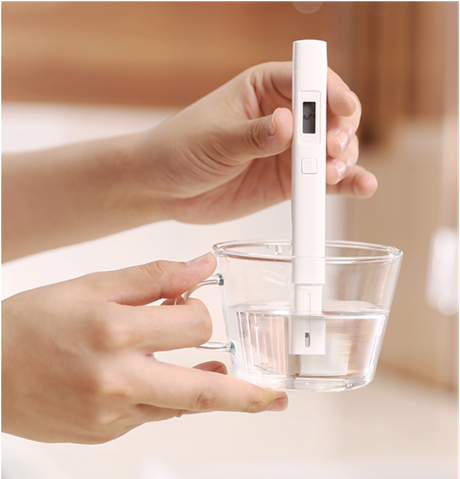
No fanciful packaging, it comes with the TDS test pen and simple guide/disclaimer sheet.
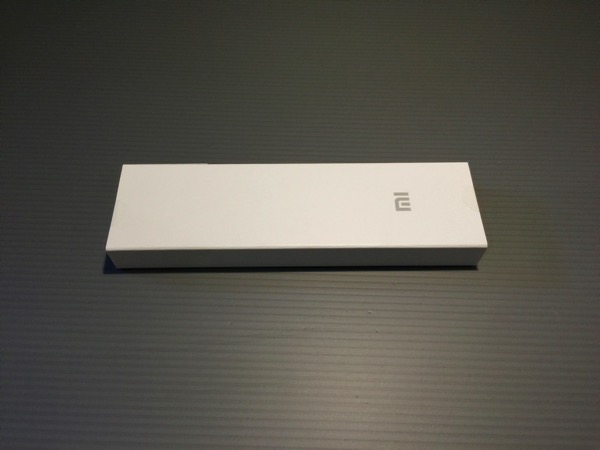
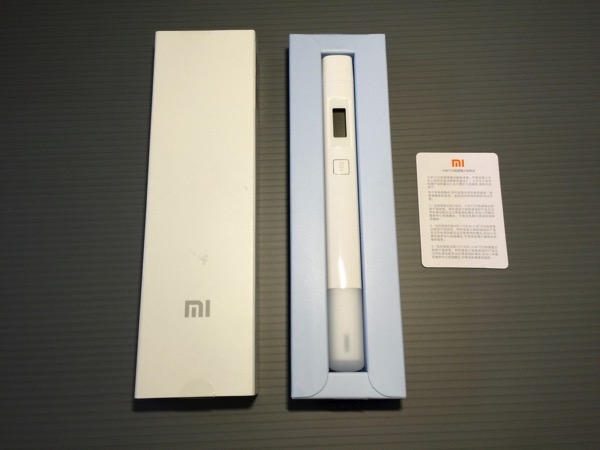
The TDS test pen measures to a normal ballpoint pen. Unfortunately, it does not come with a clip on the body to improve its portability.
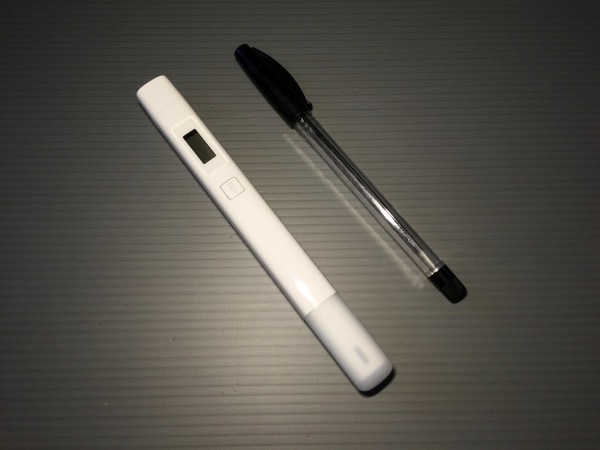
The body is made water resistant (IPX6). The top compartment holds the replaceable batteries while the bottom cap protects the electrode sensors when the test pen is not used.
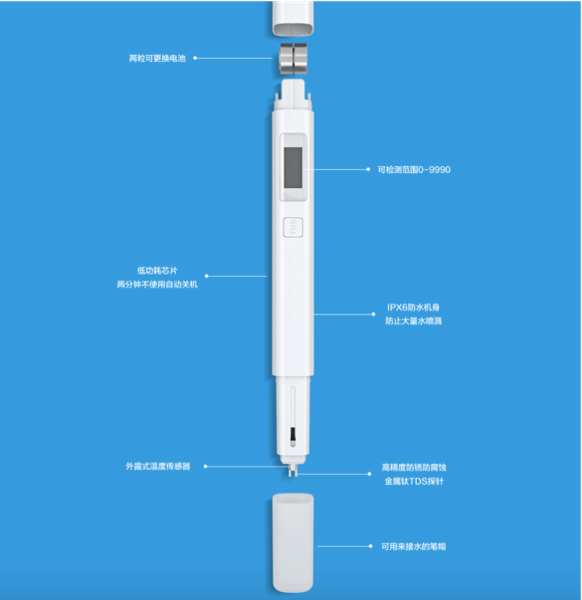
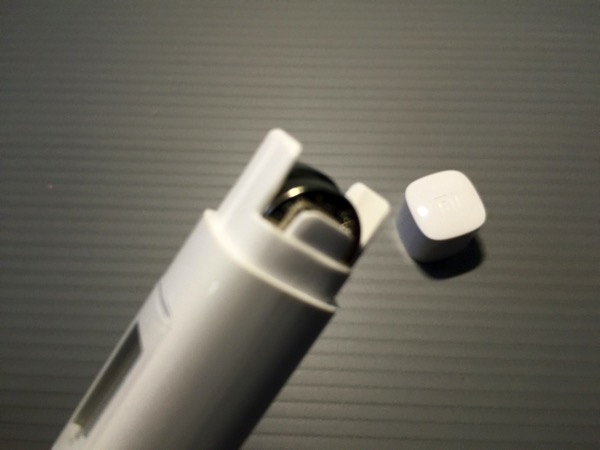
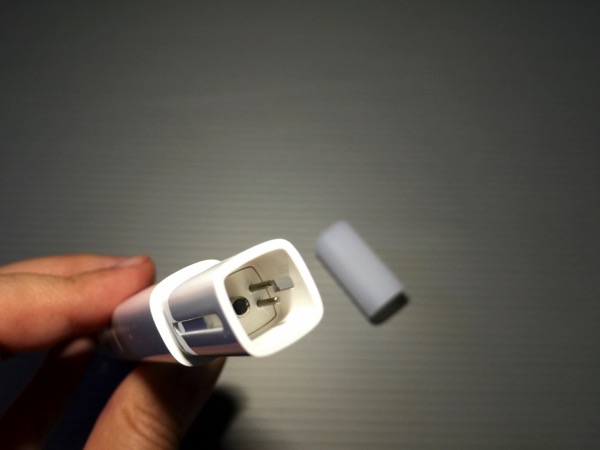
A simple press of the test button, one will be able to get the TDS meter reading in seconds when the electrodes are submerged into the test liquid.
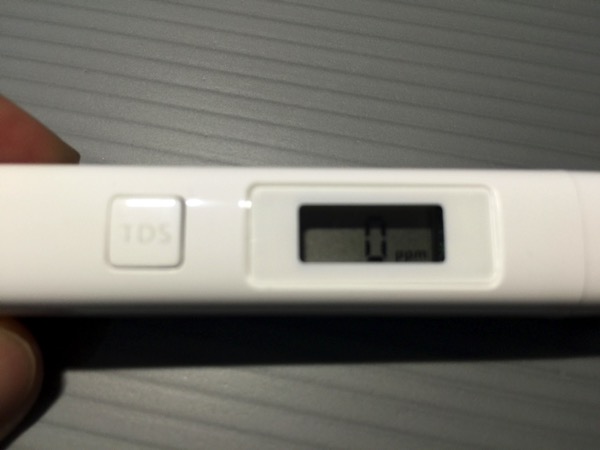
So, what exactly is TDS?
TDS stands for Total Dissolved Solids and thus a TDS meter will measure all negative (anions) and positively charged ions (cations) that are present in water.
Examples for such ions may include Calcium, Sodium, Magnesium, Phosphate, Nitrate and Silicate etc.
Mineral springs contain water with high levels of dissolved solids, because the water has flowed through a region where the rocks have a high salt content. The water in the Prairie provinces tends to have high levels of dissolved solids, because of high amounts of calcium and magnesium in the ground. These minerals can also come from human activities. Agricultural and urban runoff can carry excess minerals into water sources, as can wastewater discharges, industrial wastewater and salt that is used to de-ice roads.
Tap water standards are set to ensure that drinking water is of a sufficiently high quality that it can be consumed by humans.
WHO (World Health Organisation) does set a common standard as a reference for suitability of drinking water based on TDS levels:

However, a very low concentration of TDS has been found to give water a flat taste, which is undesirable to many people. The meter cannot detect uncharged particles such as organic contaminants. It also cannot detect undissolved particles such as bacteria.
As a matter of illustration, I have used the TDS pen on several brands of bottled water against the normal tap water supplied in Singapore:
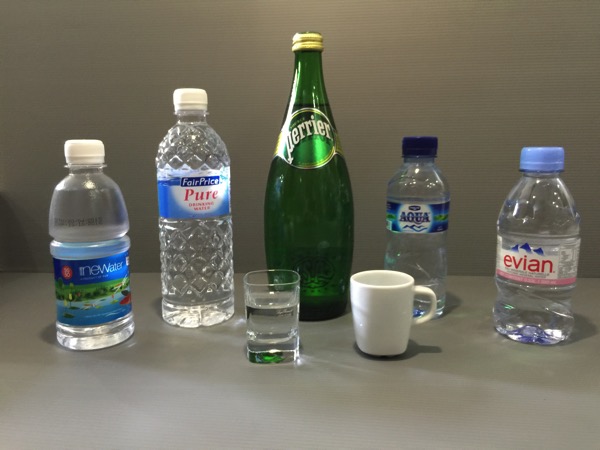
A. Tap water filtered by OSIM water filter : TDS level = 116ppm
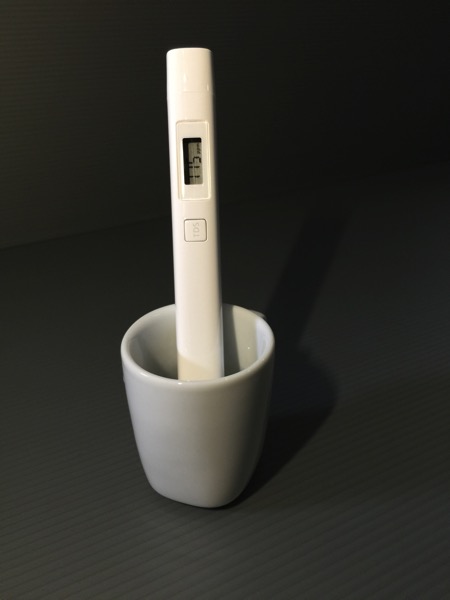
B. NTUC Fairprice distilled water : TDS level = 27ppm
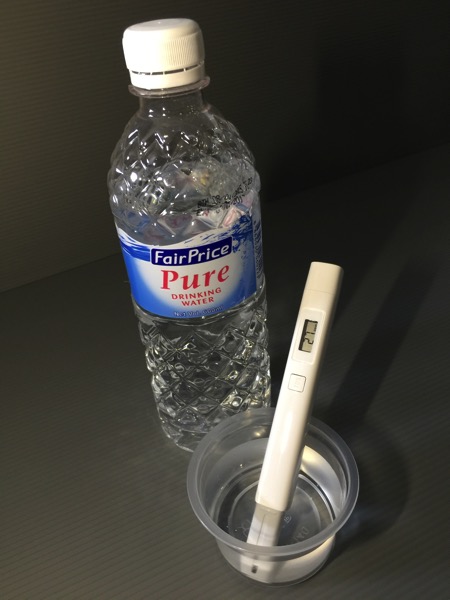
C. Singapore bottled New Water : TDS Level = 28
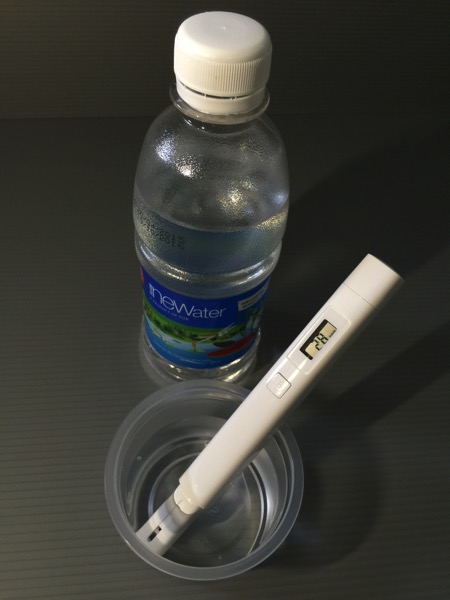
D. Aqua Bottled Water : TDS level = 84ppm
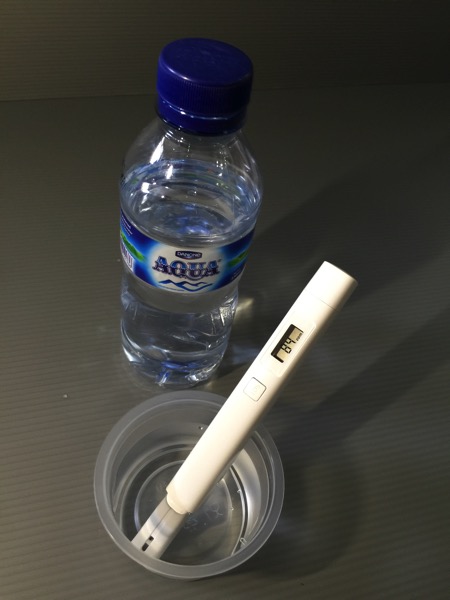
E. Evian bottled water : TDS level = 301ppm
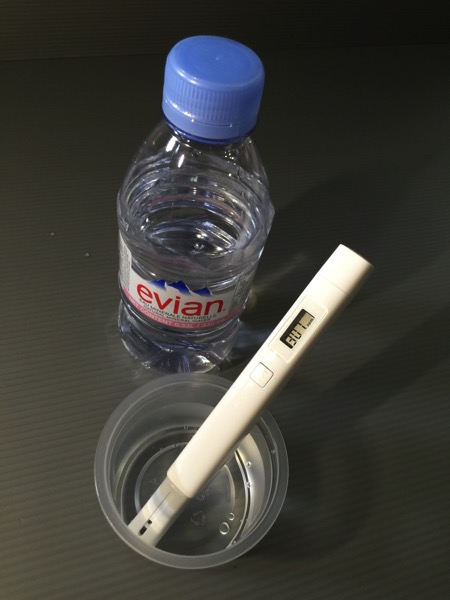
F. Perrier bottle sparkling water : TDS level = 252ppm
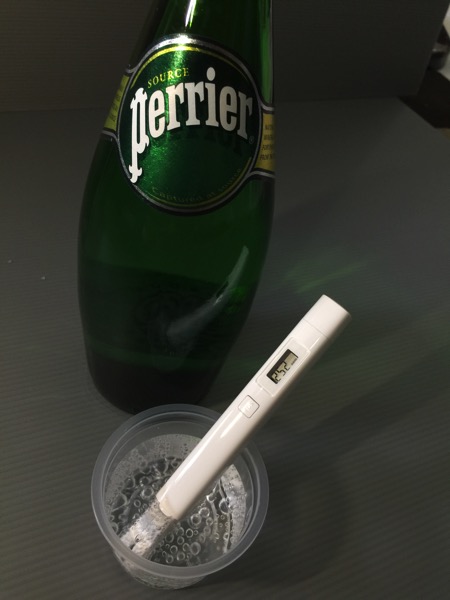
G. Regular tap water from Singapore households : TDS level = 111ppm
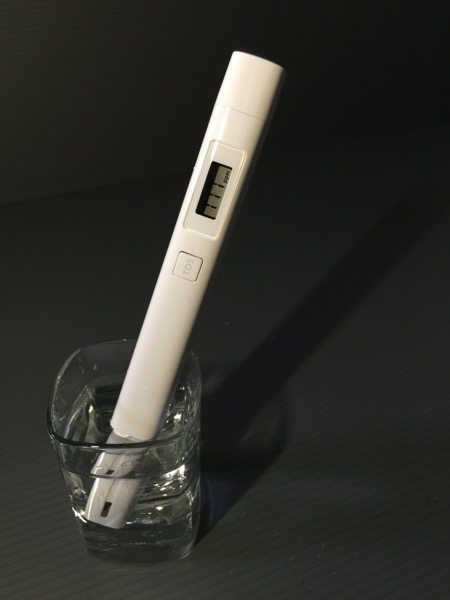
H. Regular tap water from a Singapore Office : TDS level = 103ppm
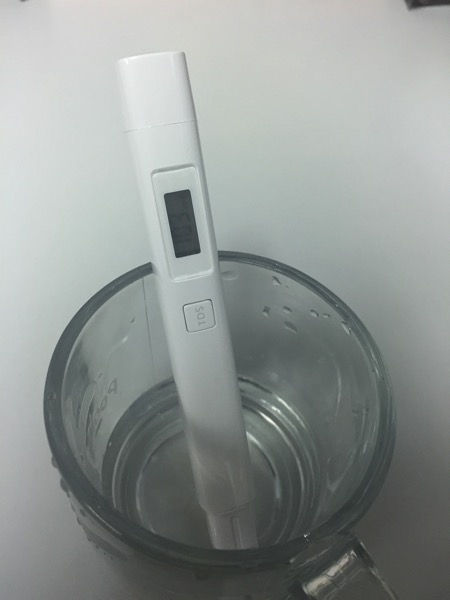
I. Filtered tap water using Novita Jug filter : TDS level = 136ppm
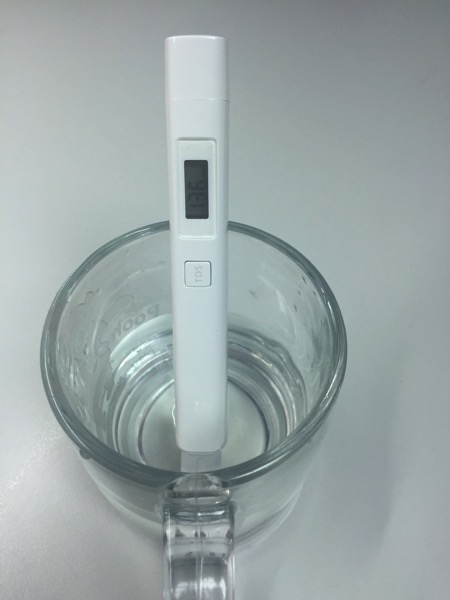
From these preliminary illustrations, it is definitely safe to assume a TDS level of <300 will be fit for drinking. That said, there could be non conducting solvents present in the liquid which cannot be detected by TDS test pen. But at least, it is one quick first level of screening especially in rural countries or setting up a fish aquarium.
Tips for using a TDS meter:
a. Avoid touching and do not damage the electrodes
b. Keep the electrodes clean by rinsing them in distilled water, if scale builds up on the electrodes you can use a little vinegar to clean them, rinse well in distilled water after cleaning.
For more information and specifications, you can refer to Xiaomi Official Website.
Read other related posts:
Follow us on:Share this article on:


4 comments for “Quick test on water source with new portable Xiaomi TDS test pen (小米水质TDS检测笔) | Lifestyle Gadget Review”